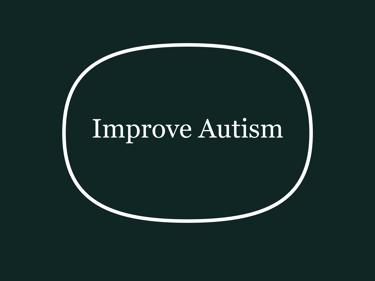Effects of Washed Fecal Bacteria Transplantation in Sleep Quality, Stool Features and Autism Symptomatology: a Chinese Preliminary Observational Study
Authors:
Zhang, Y., Zhang, J., Pan, Z. and He, X
https://pubmed.ncbi.nlm.nih.gov/35719863/
doi: 10.2147/NDT.S355233
Conclusion of study
The study suggests that washed fecal microbiota transplantation (WMT) can relieve constipation in children with autism after about 4 weeks, while also improving sleep quality and autism symptoms after 8 weeks in those with constipation. In children without constipation, autism symptoms improved more quickly (within 4 weeks), though GI issues and sleep quality remained unchanged. These findings highlight WMT as a potential therapy for autism-related symptoms, especially when constipation is present, though larger studies are needed to confirm these results due to the small sample size and observational nature of the research.
Key Findings
The study explored the effects of WMT on 49 children with autism spectrum disorder (ASD), focusing on GI issues (stool features), sleep quality, and autism symptoms. Participants were divided into two groups: one with constipation (24 children) and one without (25 children). Here’s what the study found:
GI Issues (Stool Features)
Constipation Group:
Children with autism and constipation showed significant improvement in stool features, as measured by the Bristol Stool Form Scale (BSFS).
The average BSFS score increased from 1.29 (indicating constipation) to 2.33 after the first course of WMT and further to 2.92 after the second course, approaching the normal range (3-4).
These changes were statistically significant (p < 0.001 for both courses).
Non-Constipation Group:
No significant changes in stool features were observed after WMT, with BSFS scores remaining stable (around 4, within the normal range).
Autism Symptoms
Constipation Group:
Autism symptoms improved significantly after the second course of WMT:
The Child Autism Rating Scale (CARS) score decreased (p = 0.015), indicating reduced symptom severity.
The Autism Behavior Checklist (ABC) score also decreased significantly (p = 0.046).
No significant improvement was seen after the first course.
Non-Constipation Group:
Autism symptoms improved earlier and more consistently:
CARS scores decreased significantly after the first course (p = 0.033) and even more after the second course (p = 0.002).
ABC scores showed a trend toward improvement after the second course (p = 0.053), but it was not statistically significant.
Sleep Quality
Constipation Group:
Sleep quality, measured by the Sleep Disturbance Scale for Children (SDSC), improved significantly after the second course of WMT (p = 0.026).
The SDSC score dropped from 55.13 to 45.79, indicating better sleep.
Non-Constipation Group:
No significant improvement in sleep quality was observed (p = 0.542 after the second course).
Safety
No serious adverse clinical events were reported, suggesting WMT was well-tolerated.
In summary, WMT improved GI issues (constipation) and sleep quality in children with autism who had constipation, while autism symptoms improved in both groups, with faster improvement in those without constipation.
Timeline for Improvement
The study administered WMT in courses every four weeks, with measurements taken after the first course (W1, around 4 weeks) and the second course (W2, around 8 weeks). Here’s the timeline for symptom improvement:
GI Issues (Stool Features)
Constipation Group:
Improvement began after the first course (W1), around 4 weeks after the start of treatment.
Further improvement was observed after the second course (W2), around 8 weeks.
Non-Constipation Group:
No significant changes occurred at any point.
Autism Symptoms
Constipation Group:
Significant improvement occurred after the second course (W2), around 8 weeks.
Non-Constipation Group:
Improvement started after the first course (W1), around 4 weeks, with additional improvement after the second course (around 8 weeks).
Sleep Quality
Constipation Group:
Significant improvement was seen after the second course (W2), around 8 weeks.
Non-Constipation Group:
No significant changes were observed.
Summary of Timelines:
For children with autism and constipation:
GI issues improved after 4 weeks (W1).
Autism symptoms and sleep quality improved after 8 weeks (W2).
For children with autism without constipation:
Autism symptoms improved after 4 weeks (W1), with further gains by 8 weeks (W2).
No notable changes in GI issues or sleep quality.


